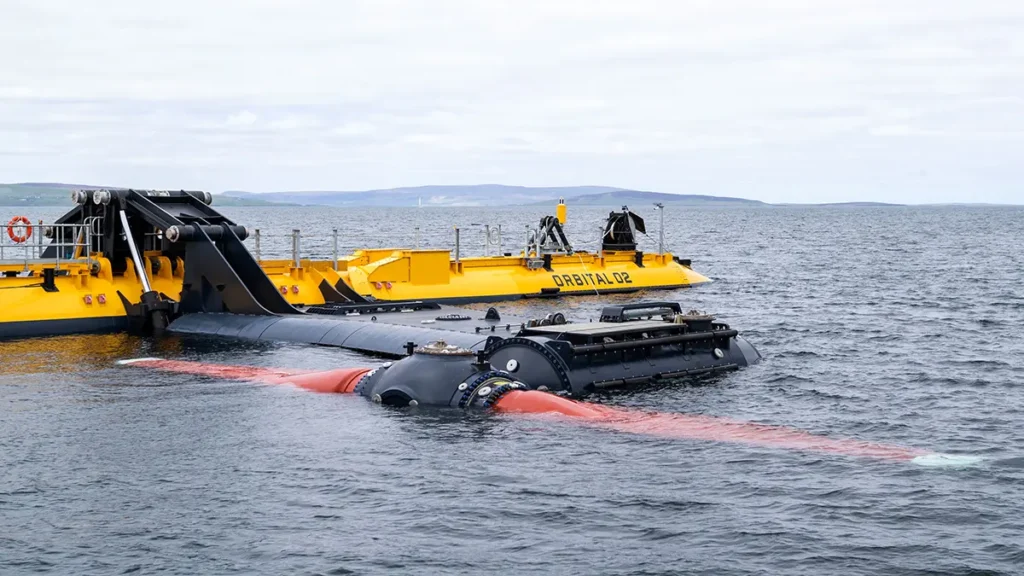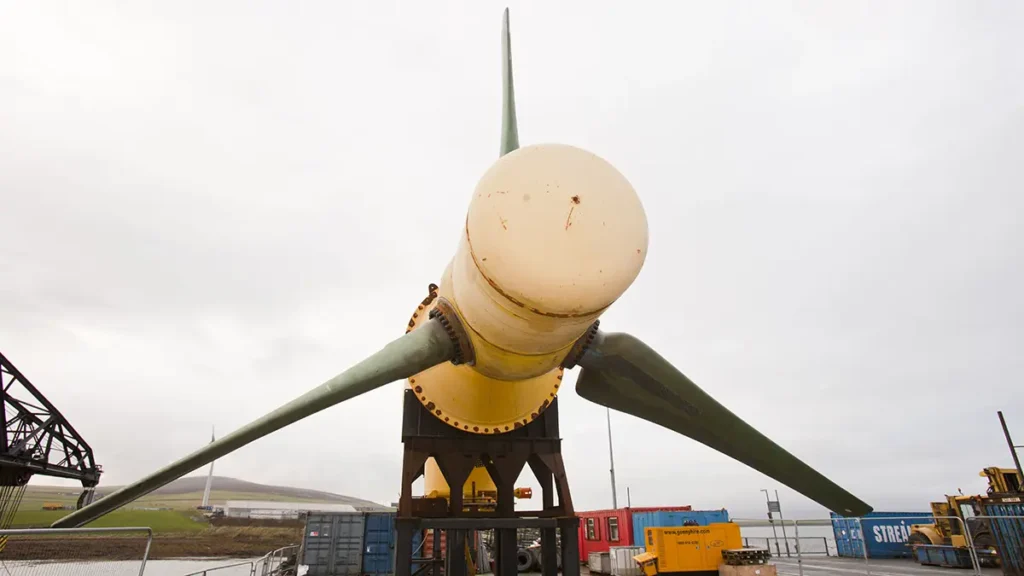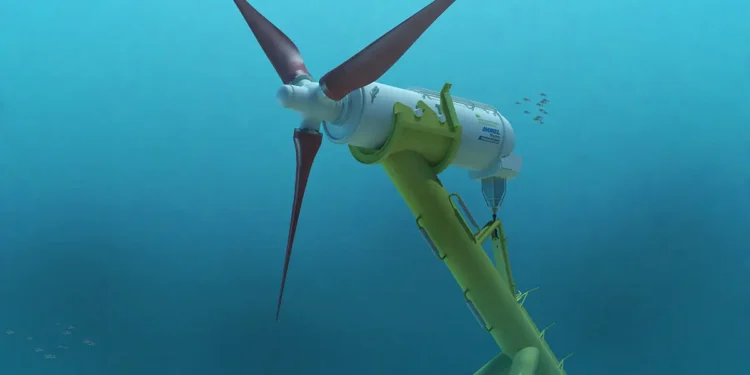The UK boasts coastlines stretching for thousands of miles, Island nations, with their extensive coastlines, are uniquely positioned to harness tidal energy, a promising source of clean and reliable power. The advantages of tidal turbines, though not new, have gained significant momentum with technological advancements and environmental awareness. This article explores some of the advantages and disadvantages of tidal energy.
Historical Context: From Coal to Clean Energy
“What a thing it is in such hot weather to think that you live on an island with the sea a-rolling and a-bowling right round you,” ponders Mr. Snagsby the stationer in Bleak House, Charles Dickens’ sprawling masterpiece written in 1852.
At that time, coal was the dominating source of energy and the London air was so thick and black that it was almost unbreathable, a stark contrast to the clean air that wind or solar energy could offer. In Dickens’ wildest dreams, he probably couldn’t predict that we would one day harness the mighty elemental forces of sun, wind, water, and the rise and fall of tides to generate electricity and power our great cities. Especially considering that the very first electric generator, similar to a low-tech version of a tidal barrage, wouldn’t grace the streets of Britain until a year after his demise.
Reflecting on Charles Dickens’ era, the shift to cleaner energy sources like tidal power marks a significant transformation. Tidal energy’s roots can be traced back to the use of water wheels, but only recently has it become a focal point in renewable energy discussions.

Tidal Power: Harnessing Tidal Energy
Exploiting the natural power of water is not a new concept. For centuries, the water wheel, an early form of a lake tidal power station, has been used to grind wheat into flour amongst other uses. And yet, the United Kingdom is still yet to boast of an entirely up-and-running system providing marine renewable energy.
Function and Design:
Tidal turbines, placed in areas with strong tidal currents, convert the kinetic energy of moving water into electricity. These underwater turbines are similar to wind turbines but are designed to operate beneath the water’s surface.
Predictability and Reliability Tidal Power:
Unlike wind and solar power, tidal energy offers predictability due to its dependence on lunar and solar cycles, making it a more reliable energy source.
Environmental Advantages Of Tidal Energy:
Tidal turbines have a minimal environmental footprint. They produce no greenhouse gas emissions and pose less risk to wildlife compared to other renewable sources.
Economic Aspects: Advantages and Disadvantages of Tidal Energy
Initial Costs and Long-Term Benefits:
Despite the high initial costs of tidal energy projects, advancements in technology and economies of scale are expected to reduce these expenses over time.
Energy Density and Efficiency:
Tidal currents are dense energy sources, meaning that tidal turbines can generate significant electricity even in small setups. This was demonstrated by the MeyGen tidal energy project’s achievement in 2023.

UK’s Leading Tidal Power Plants
MeyGen Project, Pentland Firth:
A global frontrunner in tidal energy, MeyGen has set records in electricity generation from tidal streams.
Swansea Bay Tidal Lagoon and Mersey Tidal Power:
These projects illustrate the UK’s commitment to expanding its tidal energy capacity and explore different approaches to harnessing tidal power.
The Future of Tidal Energy
Current research in tidal turbine technology, largely based around the concept of tidal barrages, promises to enhance efficiency and reduce costs, despite the known disadvantages of tidal energy. While the UK is a front-runner in tidal energy, other nations with suitable coastlines could also employ this technology – including tidal barrages – making a significant contribution to global clean energy efforts.
Tidal Turbines – Powering a Sustainable Future
The journey from Dickens’ coal-dominated London to a future powered by the ocean’s tides illustrates a remarkable shift towards sustainable energy. Tidal turbines offer a reliable, efficient, and environmentally friendly solution, making them a vital component in the quest for renewable energy sources and our efforts to turn the tide and reduce our carbon footprint.
FAQ: Exploring the Advantages and Disadvantages of Tidal Energy
Q: What is tidal energy?
A: Tidal energy is a form of energy generated by the natural rise and fall of sea levels, also known as tides. This energy can be harnessed and converted into electricity using various technologies.
Q: What are the advantages of tidal energy?
A: The advantages of tidal energy include being a predictable energy source, having a low environmental impact compared to fossil fuels, and providing a consistent and reliable source of energy.
Q: What are the disadvantages of tidal energy?
A: The disadvantages of tidal energy include high initial costs for building tidal power systems, limited geographical locations for effective tidal energy generation, and potential environmental impacts on marine ecosystems.
Q: How does tidal energy compare to other renewable energy sources, such as wind and solar energy?
A: Tidal energy offers advantages in terms of predictability and consistency compared to wind and solar energy, which are more intermittent and variable in nature.
Q: What is dynamic tidal power?
A: Dynamic tidal power is a theoretical tidal energy generation method that aims to harness the energy of large tidal range areas, such as coastal estuaries, using a system of barrages and basins to generate electricity.
Q: What is the largest tidal power station in the world?
A: The Sihwa Lake Tidal Power Station in South Korea is currently the world’s largest tidal power station, generating significant amounts of electricity from tidal energy.
Q: How does tidal energy generation work?
A: Tidal energy generation typically involves capturing the kinetic energy of tidal currents and converting it into electricity using turbines and generators, similar to the principles of hydropower generation.
Q: What makes tidal energy a sustainable form of energy?
A: Tidal energy is considered sustainable due to its renewable nature, as tides are driven by the gravitational pull of the moon and the sun, making them a perpetual energy source.
Q: What are the potential applications of tidal energy?
A: Tidal energy could be used for various applications, including powering coastal communities, supporting grid stability, and potentially contributing to the overall energy mix as a reliable and consistent source of electricity.
Q: What are some challenges facing tidal energy technology and industry?
A: Challenges include the need for further technological advancements, addressing environmental concerns, and establishing economic viability for large-scale tidal energy facilities, among other industry-specific challenges.









